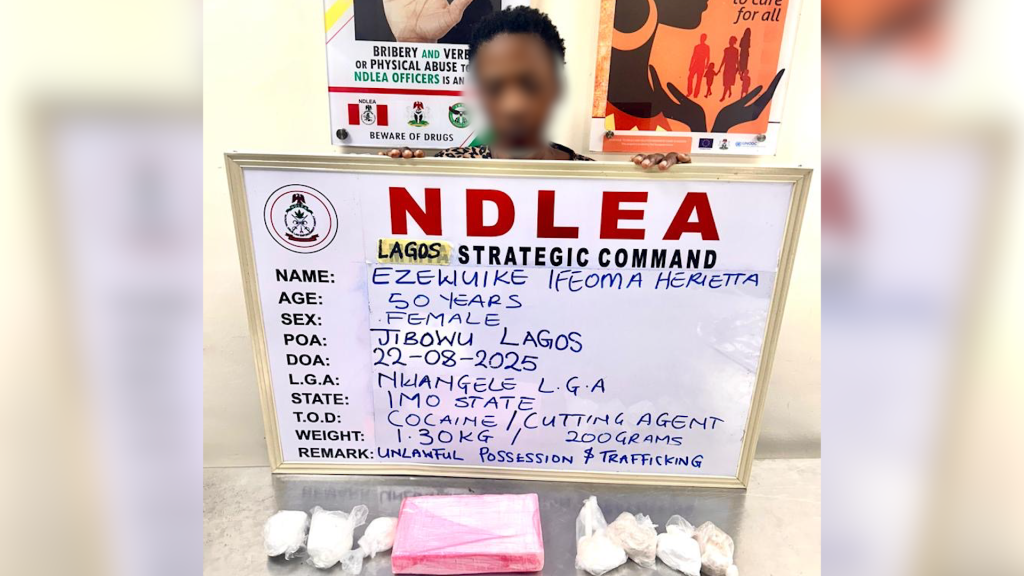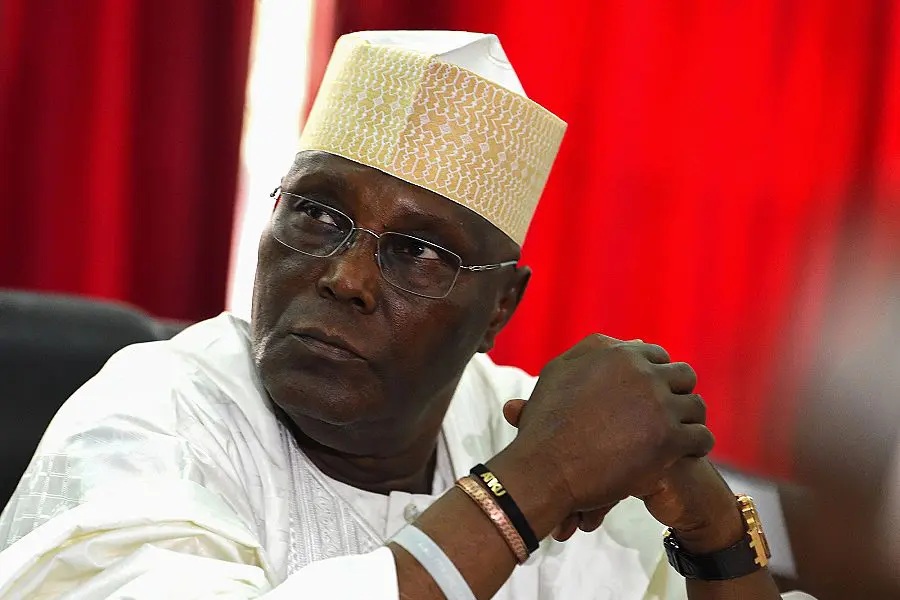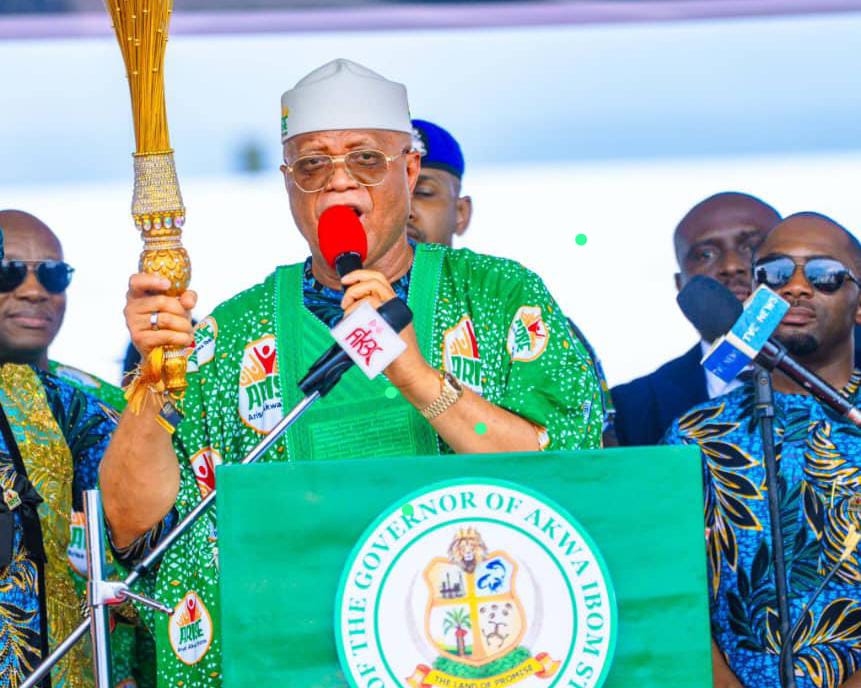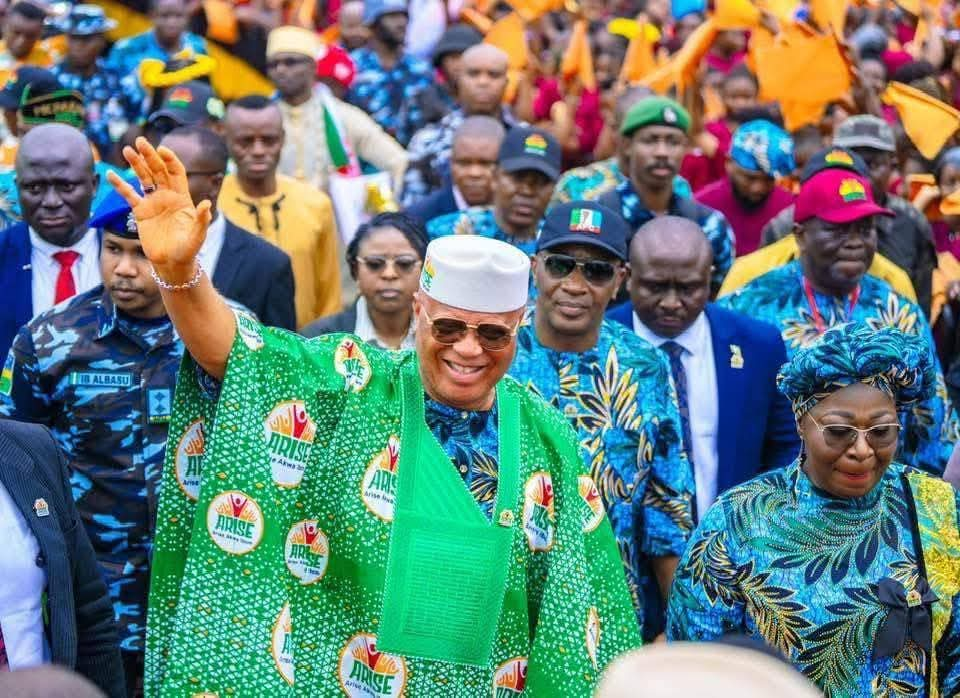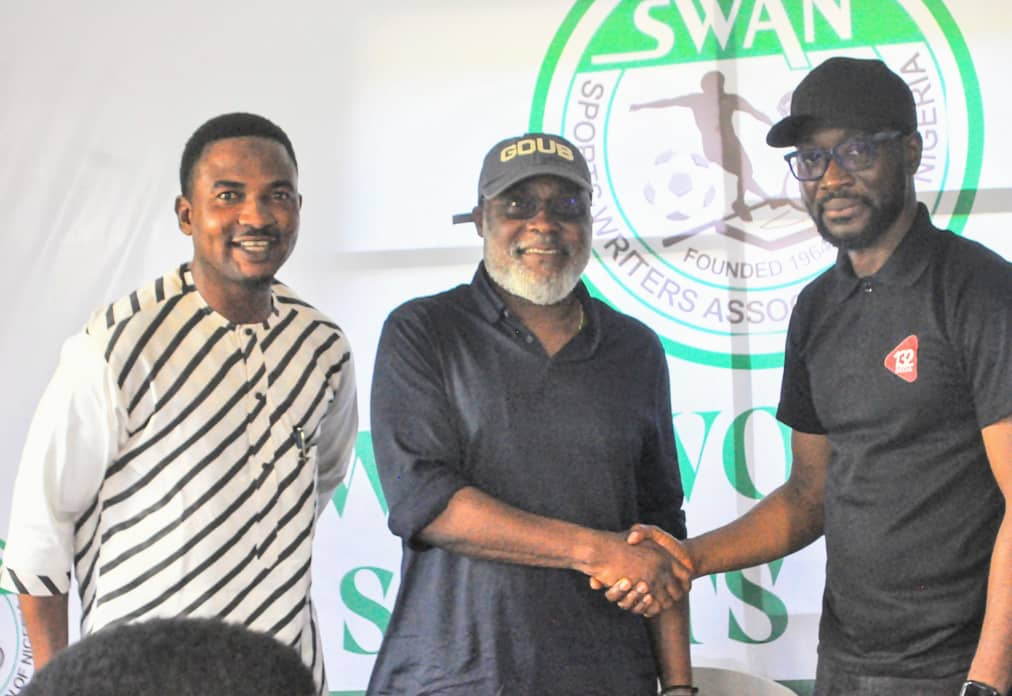Analysis
Ebenezer Obey-Fabiyi and his juju music (Part 1)
Ebenezer Obey-Fabiyi: The Commander of Music, The Evangelist of Morals, and The Professor of Culture.
Chief Ebenezer Obey-Fabiyi, whose name rings a bell in the Nigerian Juju music industry, is a veteran with great participatory culture in his contribution to the country’s political development through his music. In 1942, Obey, as popularly known, was gifted to the family of Obey-Fabiyi, a family unit in Owu, an Egba sub-ethnic group in Yorubaland. During his birth, the Egba people were well-exposed and belonged to the community of Yoruba people who understood the value of Western education. Obey, therefore, had no social challenges in pursuing academic engagement as a part of artistic excellence. Going to school was all that was needed to usher his steps to the right path in his future endeavor.

Chief Ebenezer Obey
Anyone familiar with the musical productions of the living legend would have no problem associating him with great Africans who have used their platform to promote excellence and the ignition of a shared passion or agenda. Obey was, and still is, popular in the Nigerian Juju music industry not only because he was one of the few available during the trying period, but also because his music reflects societal issues and usually provoke reactions. Yoruba social rules demand consistency from individuals who want to remain outstanding with cutting edge achievement in their social and political engagements, and Obey has adhered to these rules. He has been consistent; a committed artist who took on the responsibility of promoting values through his music.
The place of Lagos in the making of Obey can be likened to Athens, where the greatness of a number of Romans was molded. In the mid-1950s, the political significance of Lagos was undeniable, so any Nigerian who wanted to connect deeply with the masses would first consider breaking into Lagos’ ever-expanding space. Ebenezer was foresighted, and his realization that Lagos would project his career to the desired audience compelled him to relocate to the state of excellence. After some time, he began to build a patronage network and useful connections with people who had the power to better influence his career. Being someone aware of the centrality of education to his trade, he enrolled under the popular Alhaji Fatai Rolling-Dollar’s band, where he learned the art of music and how to negotiate his goals within the socioeconomic configurations of the society. Having learned the ropes, he decided to give his music career a befitting trajectory by organizing “The International Brothers” in 1964. The band, which became the projector of his music production and performance, served to forge an unbreakable bond between him and his legion of admirers, spreading his fanbase across the world.

Owu masquerades
Obey is a philosopher and an ardent researcher whose scope of research is informed by his audience and their geographical reach. Once he realizes that he needs to incorporate an idea into his music, he does not waste time in introducing exciting concepts that will effectively promote and deliver his artistry. His observation of social activities led him to immediately redefine a group which, as at the early period of the 1970s, was transformed into the “Inter Reformers.” In every way, the group became exponentially successful partly because they introduced an indigenous flavor to their songs, which immediately caught the public’s attention. Their indigenous appeal gave room for more acceptability among the Yoruba at home and, more importantly, among those in the diaspora. Obey is eclectic with his art. He chooses to combine different systems not because he cannot define his artistry, but because he is gifted in these different areas, and he would not hide his intellectual ability. By adding more drum kits, guitars, and talking drums to his music, he became very popular with the masses. He has been doing great in his career, and he is a forceful voice in the entertainment industry and social life because he uses his skill to promote social affairs.
Obey can be understood within the context of his social engagement through music. One good way to portray his image is to expose what he does with his music productions. As a conscience of the society, a poet or a musician occupies a central position of social advancement by preserving cultural traditions and human history within the textual archives that can be retrieved by future generations. Through the process of storing the historical information of a society, they open up the possibility of intellectual engagement with the past so that people would find an effective way of moving forward to avoid similar experience or the consuming challenges of the past. There are several of Obey’s songs, for example, that highlight the sociopolitical currency of the country at the time of production.
Upon evaluation and critical engagement, we understand that the postcolonial Nigerian environment has seen a consortium of tragic experiences caused by the narcissistic style of Nigerian political leadership and with a heartrending outcome for the common individuals. Obey’s “Ohun Oju ri L’aiye,” [https://www.youtube.com/watch?v=aahZhKl3CW8Obey] x-rays the postcolonial decadence displayed by the elite in the management of the commonwealth. He alludes to their wastefulness and the sheer lack of foresight as the original foundation for the woes and travails that the average Nigerians faced. He reiterates that by excessively siphoning the commonwealth for provincial and personal agendas, the lack of economic redistribution exposes the people to greater economic risk, and they suffer from poor administrative or weak leadership commitment. The song, which translates to “What the eyes have seen,” seeks to give the audience a crystal-clear picture of what the Nigerian society represents in the period after the country’s much-anticipated independence.
Ebenezer Obey decries the political insincerity that prevails during the period as the central reason for the emasculation of the Nigerian masses’ economic strength. Therefore, the average individual has trouble accessing wealth that can be used to transform their lives, and due to this inability, they suffer beyond what could be imagined. The song is a metaphor for the incapable political elites who thought that independence was all that was needed to drive the country to the next phase. Beyond the agitation for self-determination, every progressive civilization must have a clear picture of what the future might look like, as well as the zeal to follow their plans with actions and seriousness. In Nigeria’s case, however, the 1950s and the 1960s were periods of political interregnum caused by incurable kleptomanias in power.
The country’s political situations continue to move in diverse directions, making it impractical to maintain a national focus. The instability in the philosophy used by leaders can bring about some social challenges or pressure on the governed, and because the Nigerian populace has undergone a series of disproportionate social struggles that have violated their innocence and exposed them to conflicting experiences, the masses have been forced to make do with any available crumb released by the political class. Meanwhile, the political class, the elites and those who enjoy the advantages of the bourgeois class, live large at the expense of the helpless masses. This does not only reflect in their materialist culture, but it has also permeated their moral architecture, and they have displayed a socially unacceptable moral culture. They pursue financial success to the detriment of their subjects, ignoring the fact that society often succeeds in rearranging events and activities. Thus, in 1968, Obey released another beautiful track titled, “Ore Mi E Se Pelepele,” literally translatable to “Dear friend, be diplomatic” [https://www.youtube.com/watch?v=F30zG4i-y5U]. It is moral advice to people who have chosen to intimidate others because they have risen to a higher position on the financial ladder. Obviously, through songs like this, Ebenezer Obey and many other professionals re-engineer society through their creative renditions.
In most cases, musical artists are agents of peace and this springs from the fact that they have social acceptance that is only comparable to that of the political leaders. In fact, their influence can be argued to be greater than politicians’ because once the political leaders exit the corridor of power, except if they are exceptionally successful in their leadership, the masses have a strong delete button that they press in their memory. And upon the activation of this key, the social importance of the politicians evaporate immediately. However, this is not the case with musicians, for obvious reasons. With their songs and productions, they have the ability to reignite the masses’ feelings in a different age from the actual time of production because each generation is likely to get a different meaning to an artist works, depending on the prevailing social attitudes of the time.

To not lose sight of our focus, Ebenezer Obey once facilitated the promotion of peace among warring individuals in the Yoruba society. And because he recorded something that can be related to the current time, his ability to project into the future has helped in using his songs to settle disputes in some situations. In 1971, Obey produced “Ija Pari,” meaning “dispute is settled,” to show the finality of the infraction between two opposing groups, one of which he was a member. The song was to quell the escalation of the conflict (https://www.youtube.com/watch?v=wq34P00XVlM) between him and another popular Afro-juju artiste, King Sunny Ade. These two are eminent personalities in the juju music industry and also in the Yoruba cultural environment. However, the inevitability of contradictions always leave room for clashes between groups and individuals, and when these conflicts arise, they polarize the society and make peace difficult to attain. Developments of every kind—social, cultural, political, and others—become practically impossible when there is no peace.
In essence, the effect that these two icons could have on the social architecture of the Yoruba society cannot be ignored. As a result, it was important that there were efforts to bring about peace between them, even though it was clear that their different fan bases were happy about the conflict’s progression. From Obey’s disposition to the controversy, we know that he is a peaceful person who is open to dialogue. Beyond the philosophical significance of his song, “Ija Pari” encourages peaceful coexistence in the society and emphasizes the need for mutual respect, dialogue, and inclusive development agenda in the course of moving forward as a people.
Ebenezer Obey represents many things to the Yoruba people and culture as a whole. He is a preeminent cultural ambassador as well as a conflict resolution icon. The Yoruba culture is rich in moral and ideological values, and the fact that a lot of intellectuals and artistes exhibit the traits of that culture corroborates this argument. On many occasions, Obey has been involved in the promotion of Yoruba cultural traditions through his music. By actively evaluating the moral aspects of the Yoruba people, he relies on their oral history to recreate their present time in one of his classics, “Miliki” https://www.youtube.com/watch?v=vT4osfiw4Fk
He stresses the philosophical position of the Yoruba, who believe that life progresses because humans are faced with a barrage of challenges. And because there are challenges, humans develop their intellect to find ways to contain the challenges and travails of the society. Therefore, as humans negotiate their way through life, they would be disturbed by making some significant decisions that would affect their lives. Obey uses his songs to promote the relevance of Juju music artistes, creating social awareness about them, and advancing their participation in encouraging moral principles and values in the society. He also cautions against being distracted by humans in the course of an individual’s life journey.

Chief Ebenezer Obey and Fatai Rolling Dollar
Even when there are compelling reasons to follow the lines drawn by the society so that the trajectory of moral and spiritual understanding would be maintained, humans must be able to use their discretion when listening to advice from individuals whose moral behavior is questionable. In other words, one cannot continue to listen to everyone’s advice because human advice would be as diverse as their experiences. This opens the possibility of clashes between ideas and philosophies. When people get to this point, they will never be able to avert the different forms of conflict engendered by listening to many voices. In “Baba Oniketekete”
[https://www.youtube.com/watch?v=q3PYcTQezQM]
Obey uses the narrative of an elderly person who set out on a journey with his child, using their horse as the mode of transportation. Each time the man decides who is in the best position to sit on the horse during the ride, he is exposed to aggressive criticisms from people who would rather condemn his decisions without understanding his reasons. Listening to successive advice from humans drained him and almost made him lose his sanity. Through this masterpiece, Obey warns that while it is important to listen to people’s advice and admonitions, it is foolish to allow them to prevail in one’s life decisions. People will judge one’s actions and decisions without making efforts to understand the reasons behind those actions.
On the same album, Obey produced another track, “Aiye Laba Ohun Gbogbo,” which means “things of nature precede man.” Understanding this, the Yoruba people develop a working philosophy that checks their actions as humans. The import of that philosophy is twofold. On the one hand, humans are enjoined to be circumspect in their attitude to life and their behavior towards others. Since humans know that everything in nature comes before them, they would be guided on their moral perception of life. Nature’s gifts are, therefore, meant to be enjoyed and valued accordingly. People must desist from individualism that places one person above others. When people behave this way, they violate others’ rights by denying them access to the basic necessities of life. On the other hand, however, humans would leave everything behind, regardless of how popular, powerful, or significant they are to the society. Essentially, this philosophy preaches diplomacy, circumspection, and caution to people who are taken away by the euphoria of material possessions. Moreover, in doing so, it encourages people not to spare opportunities to enjoy their life when they have the chance because human existence is transient. These are the ways through which the society instils the moral beliefs of the community into the younger generations.

Ebenezer Obey and his International Brothers Record
Obey set the bar in entertainment. He is so adored that almost everyone, regardless of their cultural belief, accepts him and sees him as their icon. He is a force to be reckoned with behind the microphone. Obey performs his songs with a level of ease that one cannot easily find among other entertainers. He makes people dance, no doubt, and beyond this, he leaves a strong imprint of his ideas into them. In “No Place Like my Country” [https://www.youtube.com/watch?v=djfFm02BDz0], he combines his philosophical dexterity with entertainment excellence. The track was released during the time of postcolonial tensions when individuals refused to see the convincing reasons why the colonial government and system gave independence to the erstwhile colonies in the first place. The level of betrayal of the political class generated a feeling of detachment and nostalgia for the country during this period.
To prevent this situation from spiraling out of control, a social mobilizer like Obey has the social responsibility to douse people’s tension and give them hope. The concept of promoting Nigeria underscores the importance of providing people with hope so that they can have focused attention on the development of their country. By singing the country’s praise, even when the political class was extravagant and wasteful, he tells Nigerians that they have a future to look forward to, different from what the political representatives provide.
Almost a decade later, precisely in 1984, Obey released another song titled “The Only Condition to Save Nigeria” [https://www.youtube.com/watch?v=EG80LxhZ6cM], where he diagnosed the country and gave detailed accounts of how it was speeding in a wrong direction. This means that the music artiste is aware of the country’s challenges when he earlier sang about its resplendent condition. But because he has a duty towards society, he rises to the occasion whenever it needs his voice and contributions.
Without forgetting that he is highly determined to achieve all of these, Obey is an icon of excellence who has transported the Yoruba culture beyond its geographical boundaries. He is one person who will not be forgotten in the annals of history because he has made significant contributions to the advancement of the Yoruba world and African music. Through his music, he has facilitated a peace accord and enhanced the promotion of dialogue to resolve controversies that have destructive potential.
Ebenezer Obey-Fabiyi (aka Commander) is a loving father, a successful businessman, an influential figure in the Nigerian community, and a global musical icon. He is an extraordinary entertainer, seasoned sociologist (achieved through his interrogation of the social happenings), a moral figure, and an instrument of change. His music continues to reflect the timeless sociocultural and sociopolitical issues of our time. For the immense contributions he has made to the advancement of humanity and the preservation of oral culture, it is not out of line to celebrate his ingenuity.
Analysis
Why Penis Size Does Not Affect Performance, Fertility — Experts

For countless men, penis size stirs deep anxiety fed by social media, locker-room banter, and pressure from adult content.
But sex experts and urologists agree: size rarely determines sexual function or fertility.
In a revealing conversation with PUNCH Healthwise, clinical sexologist Cecilia Agu and consultant urologist Dr. Gabriel Ogah broke down the myths emphasizing emotional connection, overall health, and sperm quality as far more meaningful indicators of sexual well-being.
Sexual Satisfaction Lies Beyond Size
Agu, who specializes in human sexology, has heard the insecurities countless times. Yet she insists that the fixation on size overshadows what truly matters in intimate relationships.
“Women value intimacy, chemistry, and creativity not centimeters,” she explained, her tone both compassionate and pragmatic.
“In most cases, size doesn’t determine performance or biological capacity. Only rare, clinically significant conditions impact size.”
She points to societal myths that equate larger size with virility.
“Historic portrayals in art and literature, and today’s media, amplify stereotypes. Pornography exaggerates, turning a normal variation into unreasonable expectations.”
Agu also cautioned against the booming market selling “enhancement” remedies.
“That industry profits off insecurity peddling pills, gadgets, and herbal supplements with no proven benefit.
The real dilemma lies in emotional weariness, not physical deficiency.”
She acknowledged true medical conditions like micropenis, often linked to hormonal or genetic causes but emphasized their rarity.
“Anyone worried about hormonal imbalances or developmental issues should seek professional evaluation,” she advised.
“Fertility Is Unrelated to Size” Dr. Gabriel Ogah
Dr. Ogah, a respected urologist, offered a no-nonsense medical perspective on the fertility question.
“A small penis doesn’t reduce a man’s ability to impregnate a woman,” he stated firmly.
“If sperm is healthy and ejaculation occurs, fertilization can happen.”
He added that many young men consult him out of anxiety sparked by unrealistic comparisons.
“Almost always, their size falls within healthy norms. It’s undue stress, fueled by exposure to distorted media portrayals.”
Dr. Ogah also debunked the idea that older men can “restore” diminishing function through enhancement products.
“As absurd as it sounds, many try. But no pill or serum can permanently alter anatomy.
These are myths masquerading as solutions.”
So What Truly Matters?
Both experts agree: prioritizing overall health, emotional intimacy, and stress-free communication far outweighs anxiety over size.
Agu stressed that sex is about connection, not metrics. “Being nervous about measurements sets couples up for dissatisfaction.
But when you focus on pleasure, emotional safety, and experimentation, the experience transforms.”
Dr. Ogah echoed this, emphasizing regular health check-ups. “Good cardiovascular health, balanced hormones, and mental well-being are key. Size doesn’t affect that.”
Dispelling the Myths, Sustaining the Confidence
As myths dissolve under scientific clarity, a bigger concern emerges: how do we nurture a culture free of body shaming? Agu proposed educational steps.
“We should teach young people that anatomy varies. Performance is multi-dimensional. Communication trumps comparison every time.”
Dr. Ogah endorsed that sentiment. “Let’s shift the narrative. Appreciate function over form. Listen to your body, and care for it through healthy living.”
Performance Isn’t About Inches
Size remains largely irrelevant when partners are emotionally in sync, focused on connection, and attuned to shared pleasure.
Fertility hinges on sperm health not size.
Medical concerns like micropenis are rare, but deserve medical evaluation.
Media, culture, and marketing distort reality. Let’s counter that with facts.
Confidence and sexual well-being stem from health, honesty, and intimacy not obsession with size.
In the end, as Agu beautifully summed up, “It’s not the size it’s how you share it.” That truth holds far more value than any number on a measuring tape.
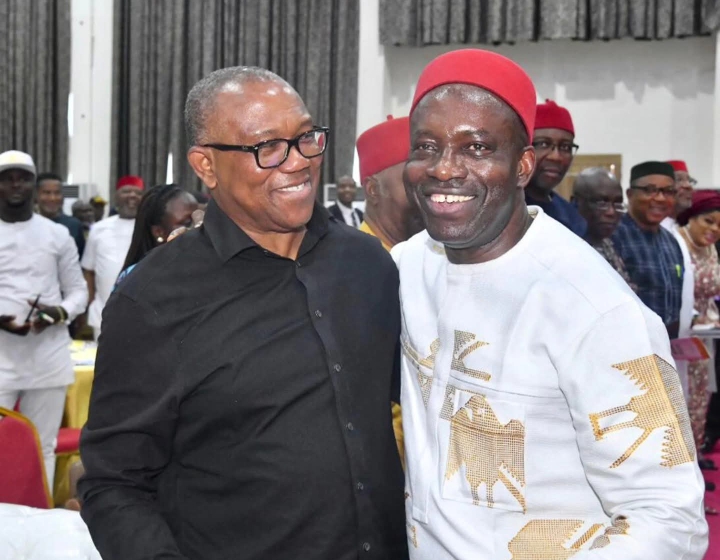
You have to suspend emotional reasoning if you want to relate to this commentary. Like a child, be pure in your heart and see Soludo and Peter Obi as two students competing for the best result to gain a sole scholarship.
The sole scholarship is up for grabs, and they are fighting for the best grade. Today, I want to discourse about two competitive students.
Let me get rid of allusion and be more direct.
Soludo and Obi are in a healthy competition for who will champion the Igbo presidency struggle. The two are fantastic options. I don’t have a choice yet, but let’s take a factual look into the prospects.
The Soludo you see in Anambra State Government House is using that position as a template and constructing his path to the presidency. There is a reason he is performing, and there is a possibility he will outperform Peter Obi by the time his eight years come to an end.
The scholarship in this context is the presidential office. An Igbo president is being considered, and the scorecards of all Igbo governors are being assessed.
When you wonder how Soludo is able to construct roads. Pay civil servants. Employ more teachers, and build infrastructure and social amenities. Establish a security outfit to fight insecurity. Provide multiple skill acquisitions and fund Anambra youths to make ends meet with the free skills acquired, free antenatal and post-antenatal care, free education, and hospitals for each local government with almost zero borrowing, and then you can start to see the bigger picture.
Governor Chukwuma Soludo is going to break more records in his second term. Frankly, I don’t want to talk about the coming governorship election because there is practically no election happening; it’s a one-horse race election.
If you keenly look at what Governor Chukwuma Soludo has achieved in his first term with almost zero borrowing, you would be forced to ask, “How is it possible?”
Past governors borrowed hundreds of billions and ended up constructing roads, but Chukwuma Soludo, throughout his 3.5 years, has constructed more roads and constructed a new government house. Touched social amenities and infrastructures, even funded youths like a father funds his sons after enrolling them in a school of skills acquisition. The roads he is constructing are more durable.
Soludo in three and a half years has practically done great in the state. Discussing with my friend, who told me that the governor is setting a new standard, I objected to him and made it clear that it would be hard for other governors to follow in his footsteps.
When Soludo came up with his tax initiative, the pain was sharp, but over time, it appears to have subsided because he is using the taxpayers’ money for projects in the state.
Soludo’s predecessor left an almost empty purse, and borrowing was inevitable, but his determination to run a government of inclusive financial responsibility led him to raise money within the state and use it judiciously.
Governor Alex Otti borrows hundreds of billions of Naira and constructs a road in Aba; social media obedients hail him like he had done any extraordinary thing, but when Soludo does even more without borrowing, the extraordinary achievement is met with deafening silence from them.
On social media, obedients have become mediocre and hypocritical. This is a fact and not criticism.
Peter Obi needs to come clean and end politics of emotion and pity. He is not a strategist, and one wonders how he would succeed in the strategic arena of Nigerian politics. If he continues to whip up emotions and sentiments with the hope of taking advantage of the two to win the Nigerian presidential election, then he is dreaming.
Soludo, on the other hand, is a strategist and realistic person. He is devoid of sentiment and embraces the toughness needed to lead. He tells you what he wants or will do and quickly proceeds to execution. Above all, he doesn’t claim to be holier than thou.
He contested the governorship election in 2010 against Peter Obi; after he lost the election, he went back and strategized. He waited and identified the right persons and won the election on the second attempt. That’s a strategic approach to execution.
Slimy characters who play the holier-than-thou game end up turning into beasts once given the mantra.
For instance, Peter Obi attended Rev. Father Mbaka’s fundraising service, but when called to donate money, he deceitfully objected. Why did he attend in the first place, and why can’t he donate like others? Because he wants to play the holier-than-thou game.
Like Soludo, Obi tried during his term as a governor. He saved money for the state, and that was his signature deed as a governor. But what is the essence of saving state money you could easily invest to help the people or maximize the stakes of the state?
My brother once told me that a man that runs every day to save his money in a bank is a man who doesn’t know what to do with the money he has. He said he would rather invest his money in something for inflow and outflow than primitively save it.
Soludo is someone that bares his mind irrespective of the odds against him. But I am afraid of Peter Obi’s cunning lifestyle.
Mr. Peter Obi has constantly said he didn’t borrow money during his term in office, but available records say otherwise. That is where my fear lies. Do we truly know who Peter Obi is? An angel you don’t know is not better than a devil you know. This is my stream of thought, and I have evidence.
When the Pandora Papers were leaked, to my greatest surprise, Peter Obi’s name was there, but we all feigned ignorance of the implication. Why was our spotless Messiah’s name on the list of those who hide their money to evade taxes? What was Peter hiding?
By virtue of the Pandora Papers, Peter has something in his cupboard. He should stop telling us about wearing only one pair of shoes. About not living lavishly. About not sleeping in five-star hotels and others. If he doesn’t do all these but has money hidden somewhere, those that do all he doesn’t do are better than him.
In this journey, we want a devil we know and not an angel we don’t know.
Before I end this commentary, I want to draw a significant line of comparison between these two students.
Soludo inherited Biafra-related insecurity. Peter Obi created Biafra-related insecurity during his term in office.
Soludo is fighting and dislodging camps of UGM in Anambra State without any major massacre. Peter Obi, during his time as governor, recorded the Ezu River massacre, etcetera.
Despite facing significant inherited security challenges, Soludo has not pressed the panic button by declaring endless curfews across the state. Under Peter, Anambra recorded curfews that threw the state in fear. Youths were massacred for having tribal marks in the process.
On the borrowing debate that Mr. Peter Obi put forward as the greatest thing he achieved in Anambra. I asked AI to gather all the official records of Anambra finances during his 8-year rule. Below is the verdict. AI says Mr. Peter Obi is a liar.
AI’s Verdict:
Records of Anambra State Finances from 2006 to 2014
Based on available data from official sources like the Nigerian Debt Management Office (DMO), secondary analyses (e.g., StatiSense, BudgIT reports), and fact-check reports, below is a summary of Anambra State’s financial records focusing on debt profiles during Peter Obi’s governorship (March 2006 to March 2014). Note that comprehensive year-by-year financial statements (e.g., full budgets, revenues, expenditures) are not always publicly detailed in accessible formats for every year, but debt data is the most relevant and available metric for assessing borrowing. Data inconsistencies exist across sources (e.g., due to reporting methods or updates), so I’ve noted sources and prioritized DMO-derived figures where possible.
Key Financial Context
Revenue and Budget Trends: Anambra’s annual budgets grew from approximately ₦66 billion in 2007 to ₦110 billion in 2014, driven by federal allocations, internally generated revenue (IGR), and grants. IGR increased from ₦4.5 billion in 2006 to ₦10.4 billion in 2013, reflecting Obi’s emphasis on fiscal prudence. Obi claimed to have left ₦75 billion in savings (including cash and investments) upon handover, though this is disputed as including overvalued assets or liabilities.
Overall Fiscal Performance: Anambra was rated the least indebted state by DMO in 2013-2014 relative to peers, with low debt-to-revenue ratios. However, debt obligations existed and fluctuated.
Sources Used: DMO reports (via secondary extractions like StatiSense and fact-checks), BudgIT’s “Nigeria’s Debt Status” PDF (2019), NBS reports, and verified fact-checks (e.g., Guardian, ICIR).
No full 2006-2010 domestic debt figures were directly extractable from DMO PDFs due to access limitations, but trends are inferred from available data.
Debt Records (External and Domestic)
Debt is divided into external (foreign loans, e.g., from the World Bank, multilateral agencies) and domestic (local borrowings, e.g., from banks or bonds). Figures show Anambra had inherited debt in 2006, with some increases during Obi’s tenure.
External Debt (in USD millions, sourced from DMO via StatiSense reports):
2006: $18.87 (inherited at start of tenure)
2008: $18.89 (minimal change)
2010: $21.30 (slight increase)
2012: $24.45
2013: $30.32 (per DMO fact-check data)
2014: $45.15 (end of tenure; note: Obi left office in March 2014, so part of this may reflect early-year draws)
Trend: External debt more than doubled from $18.87M to $45.15M, indicating new borrowings or drawdowns on existing facilities (e.g., World Bank loans for erosion control and education, some allocated for post-tenure use).
Domestic Debt (in ₦ billions, sourced from BudgIT PDF, DMO via fact-checks, and Nairaland/DMO summaries; inconsistencies noted):
2006-2010: No precise year-by-year figures found in accessible DMO data. Aggregated state domestic debt nationally was rising post-2005 Paris Club relief, but Anambra’s share was low (estimated at <₦5B in 2006 based on trends; exact amount unconfirmed).
2011: ₦6.43 (per DMO via Nairaland) or ₦10.30 (per BudgIT; possible reporting variance)
2012: ₦18.47 (per BudgIT)
2013: ₦3.03 (per DMO fact-check) or ₦7.86 (per BudgIT)
2014: ₦11.05 (per BudgIT; post-handover figure, but reflective of end-2013 obligations)
Trend: Domestic debt fluctuated, peaking around 2012 before declining in 2013 (possibly due to repayments), then rising slightly by 2014. Overall, it remained low compared to other states (e.g., Lagos had ₦200B+ in 2013).
Total Debt (Combined External + Domestic, approximate conversions at historical rates of ~₦150-200/USD):
2006: ~$18.87M external + estimated low domestic (<₦5B) = Total ~₦3-5B equivalent.
2013 (near end of tenure): $30.32M external (~₦4.8B) + ₦3.03B domestic = Total ~₦7.8B.
2014: $45.15M external (~₦7.2B) + ₦11.05B domestic = Total ~₦18.25B.
Other Financial Notes:
Liabilities Beyond Loans: Obi inherited ₦35B in unpaid pensions/gratuities (cleared during tenure). Successor Willie Obiano claimed ₦127B in liabilities (e.g., unfinished contracts), not all loans.
Savings and Investments: Obi reported leaving $156M in foreign savings and ₦36B in cash/investments, verified by DMO as contributing to low net debt.
Borrowing Specifics: Mentions of a $60M World Bank interest-free loan (negotiated but for successor) and ₦1B farmer loans (state-facilitated, not direct state debt).
Data Gaps: Full audits for 2006-2010 are scarce; DMO annual reports focus on national aggregates, not state breakdowns pre-2011.
Verdict on Whether Peter Obi Loaned or Borrowed Money:
Yes, Peter Obi did oversee the collection of loans or borrowings during his tenure as Anambra State governor. While Obi has claimed he “never borrowed from any financial institution” and left no debt, this is misleading based on official DMO records.
The state carried and increased debt obligations under his administration:
Evidence of Borrowing: External debt rose from $18.87M (inherited) in 2006 to $45.15M in 2014, a ~140% increase, implying new loans or drawdowns (e.g., multilateral facilities). Domestic debt, though fluctuating and low, was present and managed, with peaks suggesting borrowings for projects.
Nuances: Much debt may have been inherited or non-commercial (e.g., World Bank grants/loans for infrastructure). Obi emphasized avoiding “unproductive” borrowing, clearing liabilities like pensions, and leaving savings—Anambra was indeed the least indebted state per DMO. However, formal debt existed and grew, contradicting absolute “no debt” claims.
Fact-Check Consensus: Multiple verifications (e.g., Guardian, ICIR) rate his no-debt claim as false or misleading, citing DMO data showing ~₦7.8B total debt in 2013.
In summary, while fiscally prudent overall, the records confirm borrowing occurred.
Author: Ifeanyi Chijioke
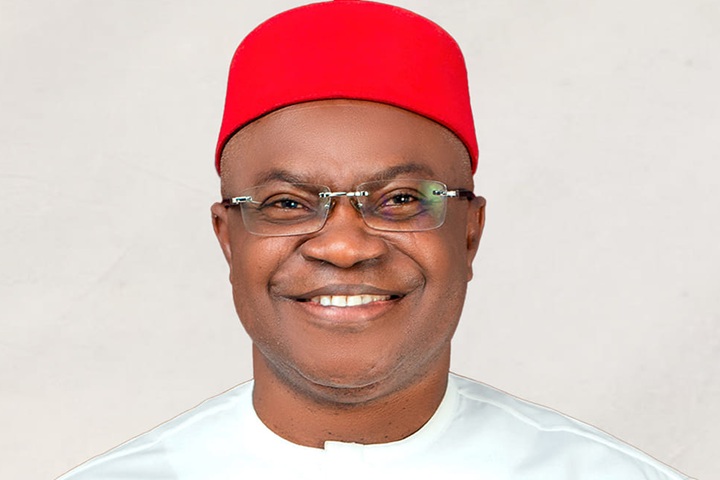
The dust has barely settled on the Anambra South Senatorial election, yet its real meaning is only beginning to reveal itself.
On the surface, Chief Emma Nwachukwu of APGA clinched the seat after a fiercely contested race. But beneath the headlines lies a calculated strategy, one that points to Governor Charles Chukwuma Soludo’s long-term political agenda.
Viewed through the lens of political chess, Emma Nwachukwu is not merely a senator-elect. He is a placeholder, a pawn carefully positioned to secure Anambra South for Governor Soludo’s eventual use.
For the governor, this was no ordinary election; it was about locking down a seat he intends to occupy once his governorship tenure runs its full course.

Governor Chukwuma Charles Soludo of Anambra State
Soludo understands the importance of Anambra South. Beyond being the wealthiest and most politically charged district in the state, it is the gateway to influence at both local and national levels.
To control Anambra South is to command leverage, resources, and elite alignment. Allowing an independent force to hold the seat would have posed long-term risks to his plans.
This explains why it was worth every naira, every mobilization, and every ounce of political capital to ensure APGA’s grip on the senatorial seat.
For Soludo, it wasn’t just about winning an election; it was about securing access to a future platform.
But here’s the deeper layer: Soludo knows APGA, for all its sentimental value in Anambra, cannot propel him to a credible presidential bid.
The plan, therefore, is simple. At the right time, he will transition to the Senate, and in due course, align with the ruling party at the center, most likely the APC. With that move, the Anambra South seat transforms from a local mandate into a national bargaining chip.
From governorship to Senate, and from Senate to the presidential chessboard; this is the arc Soludo is plotting.
Emma Nwachukwu, then, is not the final destination; he is the bridge, the placeholder, the pawn whose role is to keep the square warm until the king is ready to make his move.
The election may be over, but the real game has only just begun.
Arthur Ezechukwu is a strategic communications consultant, political analyst, and media director with experience in campaign messaging, brand positioning, and executive communications. Passionate about governance and public affairs, he brings a sharp lens to political dynamics, unpacking the motives and long-term strategies that shape Nigeria’s power play.
Analysis
EFCC: The Unintended Monster ~ By Basil Odilim
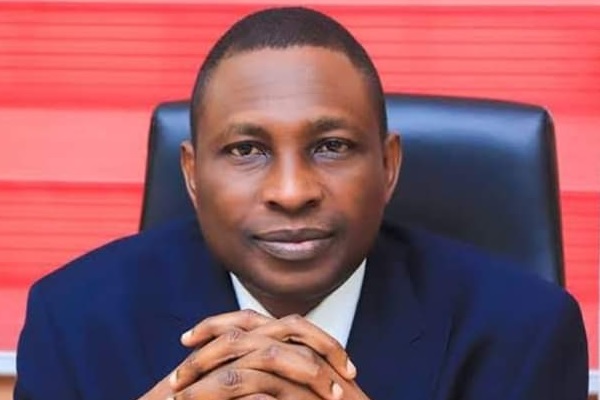
When news broke last week, the operatives of Nigeria’s Economic and Financial Crimes Commission (EFCC) stormed the Olusegun Obasanjo Presidential Library.
My reaction was not shock but recognition. I had seen this pattern before — the sudden spectacle, the images of armed men, the swift headlines — and I knew the uneasy feelings it could leave behind.
I first walked into the EFCC headquarters years ago not as a suspect but as a citizen who believed in its mission. I came with information and resources that I believed could strengthen the fight against corruption.

The author, Basil Odilim Enwegbara
In those early moments, there was optimism — the sense that this was an institution committed to fairness, thoroughness, and results.
But as time passed, that optimism was tested. Processes slowed. Meetings shifted. What I had imagined would be a model of transparency became, to my eyes, more opaque. I had also worked on a public reporting initiative with the EFCC, designed to make petitions traceable by citizens. Over time, that vision for open tracking did not take root in the way I had hoped.
My view of the EFCC began to change. It was not that the institution was incapable of decisive action — quite the opposite. It could act with speed and force when it chose to. But that force seemed, in my perception, unevenly applied. Some matters blazed into the public eye; others dimmed quietly in the shadows.
That is why, when EFCC Chairman Ola Olukoyede recently warned that Nigeria’s real estate sector had become a haven for money laundering, I agreed with the diagnosis.
Anyone who drives through certain high-end districts in Lagos or Abuja can see properties that stand empty, owned on paper, but not in life are priced far beyond the reach of most Nigerians The challenge is not seeing the problem — it is pursuing it with the same intensity in every case, no matter whose name appears on the deeds.
Raids like the one on the Obasanjo Library generate headlines. They display power. But Nigerians have long memories. For every dramatic operation, there are questions about the cases that remain invisible — the files not announced, the investigations never heard of again.
If the EFCC is to be the institution Nigerians need, it must not only fight corruption without fear or favour; it must do so in a way the public can see and trust.
Without that trust, the EFCC risks becoming something the law never intended: a force whose power is remembered more for its theatre than for its justice.
Selective Justice and the Shielding of the Powerful
Go to the EFCC headquarters in Industrial Area, Abuja, and you’ll see some hungry boys arrested for stealing a few hundreds of dollars.
That doesn’t mean that what they did was right. What I’m saying here is that EFCC leaves the big thieves and always goes after petty thieves.
Or how many powerful politicians and influential figures have truly faced prison in Nigeria? The answer is painfully clear: very few, if any.
The harsh reality is that accountability disproportionately targets the vulnerable—the so-called “yahoo boys,” the hungry and desperate youth who often become scapegoats for systemic failure.
Meanwhile, the elites who wield power and influence glide through the cracks of the justice system, shielded by networks of patronage, political alliances, and wealth.
Consider Godwin Emefiele, the former Central Bank Governor. Despite serious allegations and public outcry, he has remained protected within the corridors of power.
His case is emblematic of a broader problem—one where the scales of justice tip heavily in favor of the privileged, while ordinary Nigerians bear the brunt of corruption and abuse.
This selective enforcement not only betrays the principle of equality before the law but corrodes public trust in our institutions. When justice becomes a tool wielded only against the powerless, it fosters cynicism, apathy, and social fragmentation.
True reform demands that the judiciary break free from this pattern of selective justice. No one, regardless of political stature or wealth, should be above the law. For Nigeria to rise and thrive, the law must be applied fairly, transparently, and without fear or favor.
My fight is not just personal—it is a fight for every Nigerian who dreams of a nation where justice is not a privilege but a right.
Truly, if eyes can bleed blood, given what I’ve seen in Nigeria, my eyes should have by now be bleeding blood. Thank God eyes only shed tears.
Analysis
The Caricature Called Nigerian Judiciary: I Discovered Forgery After Court Had Already Accepted It
By Basil Odilim

Cry or laugh — take your pick. But this is what the Nigerian judiciary has been reduced to.
For years, I thought I knew everything that was going on in my own court case. I was there. I was cross-examined. I had lawyers. I followed up.
But it turns out, the most damaging thing happened without my knowledge — and only came to light recently, when I personally obtained and reviewed the Certified True Copy (CTC) of the court proceedings.
I filed my civil suit in 2017. The defendant didn’t respond for over a year. Then, in January 2019, I was cross-examined. It was a strange session.
Their lawyer pulled out a document and claimed I had received it and signed for it. I looked at it and said, “No. I’ve never seen this document, and I never signed it.”
He withdrew it. Then, casually asked me, “How many signatures do you use?” I told him, “Two.” He gave me a blank sheet of paper and asked me to sign both versions. I didn’t know what he was planning to do with it, but I signed.
Unbeknownst to me, that blank sheet — with nothing on it but two fresh examples of my signature — was immediately tendered as an exhibit. The court admitted it.
Still, no defence had been filed at that time. Then, two weeks later, on February 2, 2019, the defendant finally submitted its defence. I didn’t think much of it — until recently, when I finally obtained the full case file and the CTC of the court proceedings.
That’s when the pieces came together — and the forgery revealed itself.
Attached to the defendant’s belated statement of defence was a photocopy of the very document I had denied under oath. But this time, it had my name on it — or at least something resembling it. “Odilim Enwegbaram”.
Not Enwegbara. It was misspelled. Worse, it had been inserted over a visibly tippexed line — the only part of the document with correction fluid.
Then came the signature. It wasn’t quite mine, but close — close enough to raise questions.
That’s when it hit me: they had lifted my signature from the blank sheet I signed in court. They had fabricated the document after the cross-examination, then quietly attached it to their court filings, and waited.
How did the court allow this?
As I read through the CTC, I discovered what really happened during the tendering of that document — something I wasn’t even fully aware of at the time.
When the defence attempted to present the forged document through their witness (DW1), my lawyer raised a strong objection. He cited Sections 88 and 89 of the Evidence Act: a photocopy is not admissible unless the original is lost or destroyed and that loss must be properly established.
The judge asked the obvious question: “Where is the original?”
DW1 said, “It got lost in my office.”
Then the defence counsel stood up — and directly contradicted him. He told the court: “No, the original isn’t lost. The Claimant has it.”
Think about that. One says it’s lost. The other says it’s with me. But the document is a forged photocopy. The original was never produced — likely because it never existed.
Yet, the judge overruled the objection and admitted the document. She said she would decide later how much “weight” to give it. It was marked as an exhibit.
No one questioned the misspelling, the tippex, or the fact that the document was smuggled in after my signatures had been harvested under cross-examination.
Years passed. Then, on June 30, 2025, DW1 was cross-examined again — this time by my new counsel. Under oath, he admitted clearly: “there was no contract between the Defendant and me”
Finally, I thought. The truth has landed.
But when I received the CTC of the judgment on July 28, 2025, that admission was no longer there.
It had been replaced by this sentence: “There is a contract… by signage of the guide.”
That “guide” was the same forged, tippexed document. The one I never signed. The one bearing a spelling of my name I’ve never used. The one cobbled together using signatures I gave on a plain sheet in court — with no context and no warning.
So now, years later, I’m left with a legal judgment based on a document I never saw, never signed, and only discovered through forensic reading of the CTC.
This isn’t just about my case.
This is about how easily the truth can be rewritten in Nigeria’s courtrooms. How the law — and even sworn testimony — can be bent to accommodate fraud. And how a litigant can sit through an entire trial, not knowing that a false record has already been smuggled into evidence.
The lesson is simple: you must be involved. Deeply. Personally. Painfully.
Your lawyer might mean well, but they’re juggling ten other cases. You’re juggling only one — your own. And if you don’t read every document, get every transcript, and demand every record, you may find that the truth of your case has been changed — and nobody told you.
Cry or laugh, depending on which you prefer. But this is what our judiciary has been reduced to.
Winning the Judgment, Losing the Nation
I never planned to immerse myself in the tangled undergrowth of Nigerian jurisprudence. My life’s compass was set toward the frontiers of human possibility — human immortality, cellular neovsis, and the permanent cure for cancer. Yet, here I am, drawn unwillingly into the crumbling temple of justice, because you cannot live in a burning house and pretend the flames belong to someone else.
Is it too late to think deeply about jurisprudence and the public good? No — because when a society loses its moral and legal direction, all other progress becomes an illusion.
Plato was right: “Justice in the life and conduct of the State is possible only as first it resides in the hearts and souls of the citizens.”
Consider Nnamdi Kanu. Kenya’s High Court has already declared his abduction unlawful, inhumane, and a violation of international norms.
Yet in Nigeria, the same case — already decided in another sovereign court — staggers on as if the foreign judgment were a rumour. This is not merely legal defiance; it is judicial terrorism by the state itself.
The corrosion is systemic. Section 174(1)(c) of Nigeria’s 1999 Constitution empowers the Attorney-General to “discontinue at any stage before judgment is delivered any such criminal proceedings instituted or undertaken by him or any other authority or person.”
Section 211(1)(c) mirrors this power for states. Both require, in subsection (3), that the power be exercised in the public interest, in the interest of justice, and to prevent abuse of legal process.
In theory, this is a noble safeguard. In practice, it too often becomes a political escape hatch.
In Anambra State, the Attorney-General moved to terminate criminal proceedings, and the President of the Nigerian Bar Association rushed to defend him, invoking the constitutional imperative while ignoring the political convenience. The law was cited, but the “public interest” — the reason the power exists — was conveniently absent.
Marcus Tullius Cicero wrote: “The foundations of justice are that no one shall suffer wrong; then, that the public good be promoted.”
Justinian defined justice as “the constant and perpetual wish to render every man his due.” By these standards, selective justice is not justice at all — it is politics in robes.
The Nigerian Supreme Court, in _State v. Ilori once described the Attorney-General as “a master unto himself… under no control whatsoever” in exercising these powers. Without moral restraint, such unbridled discretion becomes an instrument of state capture, not state service.
History warns us. Rome began as a republic of laws but rotted into an empire of men when those entrusted with justice served power instead of truth. Nigeria is edging toward that same precipice.
It is not too late to resist. But the clock is not generous. A nation that manipulates justice to suit political ends may win its cases — but it will lose its soul.
-

 Celebrity/Entertainment2 days ago
Celebrity/Entertainment2 days agoHow Nigerian TikToker Geh Geh Made ₦45 Million in One Night
-
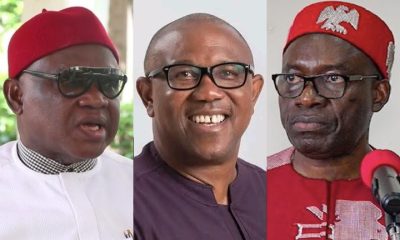
 Featured6 days ago
Featured6 days agoYour Attacks on Peter Obi Are Petty, Stop It! Chekwas Rebukes Soludo
-
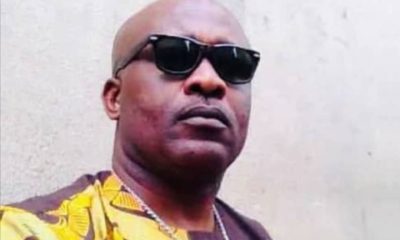
 News5 days ago
News5 days agoTension in Anambra community as senior police officer shoots kinsman dead
Colleagues, others try cover-up; victim's family fights back
-

 News6 days ago
News6 days agoNigerian visa applicants must provide 5-yr social media history — US embassy
-

 News4 days ago
News4 days agoTerrorist Organisation: APC, PDP Members in US, UK, France Risk Deportation
-

 Celebrity/Entertainment6 days ago
Celebrity/Entertainment6 days agoWhy single mothers can’t raise boys into proper men — Jim Iyke
-

 News3 days ago
News3 days agoVandal electrocuted while vandalizing Aba power infrastructure
-

 News3 days ago
News3 days ago15% of Nigerian girls aged 15–19 are mothers or pregnant — FG
-
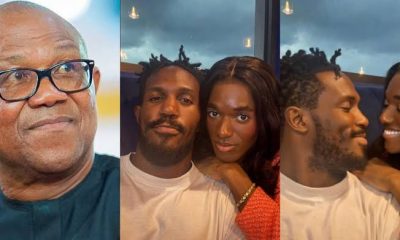
 News2 days ago
News2 days agoPeter Obi’s Son Breaks Silence Over His Viral Photos Nigerians Are Talking About
-

 News2 days ago
News2 days agoI’m not a gay — Obi’s son Oseloka speaks on viral picture



